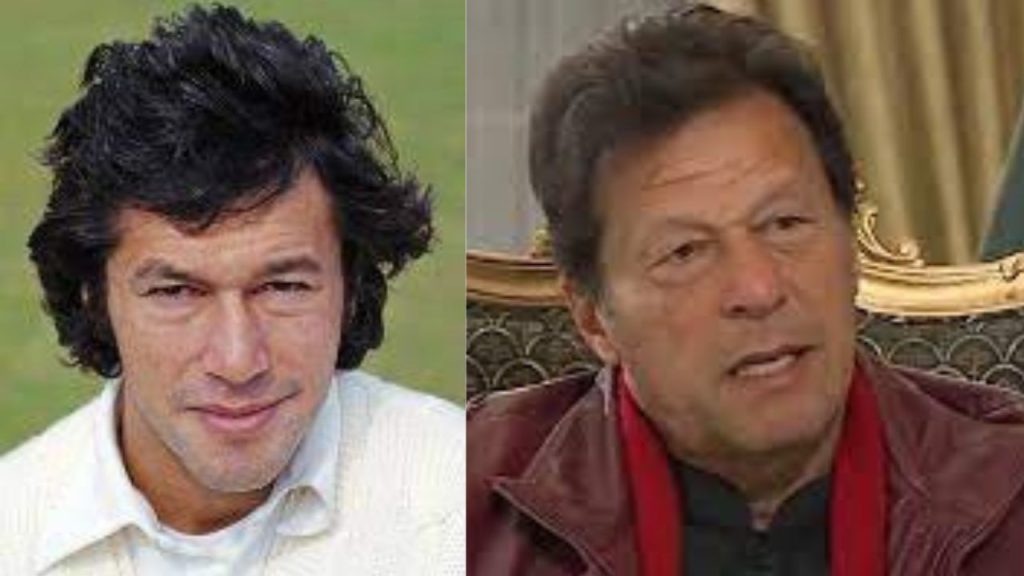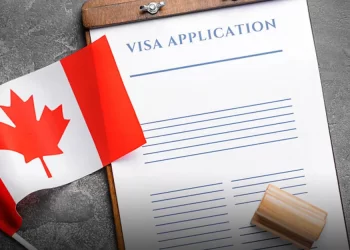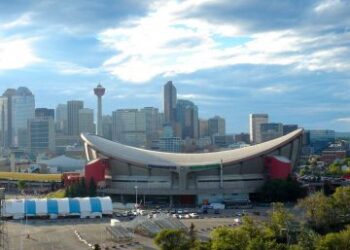
Imran Khan Biography
Imran Ahmed Khan Niazi HI(M) PP (Pashto, Punjabi, and Urdu: ; born October 5, 1952) is a former cricketer and politician from Pakistan. He served as the 22nd Prime Minister of Pakistan from August 2018 until April 2022, when he was removed from office following a vote of no confidence. He established and currently serves as the chairman of Pakistan Tehreek-e-Insaf (PTI), which is one of the most influential political parties in the nation.
Khan, who was born in Lahore to a family of Niazi Pashtuns, received his degree from Keble College in England in 1975. At the age of 18, he played his first match for his country in an international cricket competition, which took place in 1971 against England. Khan was a player until 1992, served as the team's captain on and off between 1982 and 1992, and led Pakistan to their first and only victory in the Cricket World Cup in 1992. This victory stands as Pakistan's sole triumph in this competition. Khan, who was inducted into the ICC Cricket Hall of Fame and is regarded as one of the sport's best all-rounders, amassed a total of 3,807 runs during his time playing in the Test format of the game and also took 362 wickets. Prior to his ascent in politics, Khan established cancer hospitals in Lahore and Peshawar, as well as Namal College in Mianwali. He founded the Pakistan Tehreek-e-Insaf (PTI) in 1996, which won a seat in the National Assembly in 2002, and Khan served as an opposition member from Mianwali until 2007. Khan is currently the Prime Minister of Pakistan. The PTI did not participate in the election in 2008, but in the election that followed, it became the second-largest party in terms of popular vote. In the general election of 2018, PTI emerged as the largest party in the National Assembly, and it formed a coalition government with independents, with Khan as Prime Minister.
He oversaw a reduction in the country's current account deficit, and limited defense spending to reduce the country's fiscal deficit, which led to some general economic growth. He enacted policies that increased tax collection, and investment, and he made reforms to the social safety net. His administration led the nation through the COVID-19 pandemic while also committing to a transition to renewable energy sources, beginning a national reforestation initiative, and increasing the size of protected areas. However, his failure to revive the economy and the rising inflation rate caused him political problems. [24] Despite his promised anti-corruption campaign, the perception of corruption in Pakistan worsened during his rule. He was accused of political victimization of opponents and clamping down on freedom of expression and dissent. Despite his promise to fight corruption, the perception of corruption in Pakistan worsened during his rule .
Khan was the first Prime Minister of the nation to be removed from office as a result of a vote of no confidence in parliament, which took place on April 10, 2022. After Khan accused the police and judiciary of detaining and torturing his close aide, on August 22, 2022, he was charged by the Pakistani police under anti-terror laws. The charges were brought against Khan on August 22.
Profile
| Birth | 5 October 1952 |
| Age | 69 years |
| Family | Ikramullah Khan Niazi (Father)Shaukat Khanum (Mother) |
| Education | University of Oxford |
| Profession | Politician Former Cricketer |
| Political Party | Pakistan Tehreek-i-Insaf (PTI) |
| Wife | Jemima Goldsmith (married 1995; divorced 2004) Reham Khan (married and divorced in 2015) Bushra Bibi (married 2018) |
| Children | 2 |
| Awards | Hilal-e-Imtiaz (1992) Pride of Performance (1983) King Hamad Order of the Renaissance (2019) Wetherall Award (1980) Inaugural Silver Jubilee award (2008) |
Imran Khan: Birth and Family
Imran Ahmed Khan Niazi was born to a Pashtun family of Mianwali in Lahore on October 5, 1952, to Ikramullah Khan Niazi and Shaukat Khanum. Imran Khan was the only son of the couple and has four sisters.
Imran Khan belongs to the Pashtun ethnicity and Niazi tribe. Haibat Khan Niazi, one of the ancestors of Imran Khan, was Sher Shah Suri's leading general and the governor of Punjab.
Imran Khan's mother hails from the Pashtun tribe of Burki which has given several successful cricketers in Pakistan's history. His cousins Javed Burki and Majid Khan are also successful cricketers of Pakistan. Imran Khan is also a descendant of the Sufi warrior-poet Pir Roshan.
Imran Khan: Education
Imran Khan received his earlier education at Aitchison College and Cathedral School in Lahore and then the Royal Grammar School in Worcester and excelled in cricket. In the year 1972, he got himself enrolled in Keble College, Oxford and graduated in 1975 in Philosophy, Politics and Economics.
Imran Khan: Cricket Career
Imran Khan started playing cricket at the age of 13 and made his first-class cricket debut at the age of 16 in Lahore. From 1970-71, he started playing for his home teams– Lahore A, Lahore B, Lahore Greens and Lahore.
At the age of 18, Imran Khan made his debut for the Pakistan National Cricket Team and played against England in 1971 at Edgbaston. In August 1974, Khan made his debut in One day International (ODI) and played against England at Trent Bridge. After graduating from Oxford, Khan returned to Pakistan in the year 1976 and started playing permanently in Pakistan National Cricket Team and played against New Zealand and Australia. He met Tony Greig on his West Indies tour. Tony signed Imran Khan for Kerry Packer's World Series Cricket.
In a fast bowling contest at Perth in the year 1978, he came third bowling at 139.7 km/h leaving behind Dennis Lillee, Garth Le Roux and Andy Roberts while Jeff Thomson and Michael Holding were still ahead of Khan.
In 1970, he became a pioneer of the ‘reverse swing' bowling technique. He imparted his secret trick to Pakistan's bowling duo Wasim Akram and Waqar Younis.
In 1982, Khan took 62 wickets in 9 Test matches at 13.29 each. In January 1983, he attained a Test bowling rating of 992 points playing against India.
Imran Khan achieved the second-fastest all-rounder's triple in 75 tests– securing 3000 runs in 300 wickets. Ian Botham holds the fastest record of all-rounders triple. Khan has also attained the second-highest all-time batting average of 61.86 for a Test batsman– playing at position 6 in the batting order.
Imran Khan played his last Test match in January 1992 against Sri Lanka at Faisalabad. Khan retired from cricket after Pakistan's historic win in the 1992 World Cup final against England in Melbourne Australia.
Imran Khan has played 88 Test matches, 126 innings and scored 3807 runs with 6 centuries and 18 fifties as a batsman while as a bowler he took 362 wickets in Test matches becoming Pakistan's first and world's fourth bowler. In ODI, he played 175 matches and scored 3709 runs as a batsman and as a bowler he took 6 wickets for 14 runs, setting a record for the best bowler in ODI innings in a losing cause. In Test cricket, his highest score was 136 and in ODI his highest score was 102 not out.
In 1982, Imran Khan succeeded Javed Miandad in becoming the captain of the Pakistan cricket team. Imran Khan played 48 Test matches (Pakistan won 14, lost 8 and 26 were drawn) and 139 ODI's (Pakistan won 77, lost 57 and only one match was drawn) as a captain.
Imran Khan: Post-retirement from cricket
Imran Khan after his retirement from Cricket admitted that he occasionally scratched the ball and lifted the seam. In the year 1996, Khan successfully defended himself in a libel action brought forth by a former English captain and all-rounder Ian Botham and batsman Allan Lamb. They claimed that Khan had called the two cricketers “racist, ill-educated and lacking in class” and was involved in ball-tampering. Khan protested that he had been misquoted, saying that he was defending himself after having admitted that he tampered the ball in a county match 18 years ago. Imran Khan won the libel case, which the judge labelled a “complete exercise in futility”, with a 10–2 majority decision by the jury.
Post-retirement, Imran Khan wrote several opinion pieces for various newspapers– Guardian, The Independent, Telegraph, etc. He has also appeared several times as a cricket commentator on several Asian and British sports networks– BBC Urdu, TEN sports, etc. He has also provided the match summaries for every Cricket World Cup since 1992.
On November 23, 2005, he was appointed as the chancellor of the University of Bradford. On February 26, 2014, the University floated a motion to remove Imran Khan as a chancellor due to his absence from every graduation ceremony since 2010. Later on, in November 2014, Khan stepped down as the chancellor citing his increasing political commitments.
Imran Khan: Political Career
Imran Khan was offered the political positions during his cricket career– the then President of Pakistan Muhammad Zia-ul-Haq offered him a political position in Pakistan Muslim League (PML), former Prime Miniter of Pakistan Nawaz Sharif also invited him to join his political party, which he declined.
In 1994, Khan joined a group led by the former ISI ( Inter-Services Intelligence) chief Hamid Gul and Muhammad Ali Durrani who was head of Pasban, a breakaway youth wing of Jamaat-e-Islami Pakistan.
On April 25, 1996, Imran Khan founded his party Pakistan Tehreek-e-Insaf (PTI) and contested elections for the seat of National Assembly of Pakistan in the 1997 Pakistani general election as a candidate of PTI. He contested over two constituencies but lost the election.
Imran Khan supported General Pervez Musharraf's military coup in 1999 and believed that he will end corruption. In 2002, he was also offered the Prime Ministerial post by General Musharraf but turned down the offer.
On October 2, 2007, Khan joined 85 other MPs to resign from the Parliament protesting the presidential election which General Musharraf was contesting without resigning as Army Chief. After General Musharraf declared an emergency in Pakistan, Khan was put under house arrest on November 3, 2007. However, he later managed to escape and joined a student protest at the University of Punjab on November 14 where he was captured and maltreated by the student activists. He was later arrested from the protest and was sent to Dera Ghazi Khan jail in Punjab but was released after a few days.
On October 30, 2011, Khan addressed hundreds of thousands of supporters in Lahore and on December 25, 2011, in Karachi on the challenging policies of the government.
On April 21, 2013, Imran Khan launched his PR campaigns for the 2013 Pakistan elections. Khan addressed public meetings in different parts of the country– Khyber Pakhtunkhwa, Seraiki belt cities, etc. He announced that his party will introduce a uniform system of education where the rich and poor will have the same opportunities. He ended his campaign by addressing supporters of Islamabad via a video where he was lying on a hospital bed in Lahore due to his head injuries after he tumbled from a forklift at the edge of the stage.
On May 11, 2013, elections were held in Pakistan and Pakistan Muslim League (N) won with a majority. However, PTI emerged as the second-largest party in Karachi and won 30 directly elected parliamentary seats. PTI became the third-largest party in National Assembly after Pakistan People's Party.
PTI swooped the militancy-hit Khyber Pakhtunkhwa and formed provincial government and presented a tax-free, well-balanced budget for the Financial Year 2013-14.
Imran Khan thought that terrorist activities can be stopped in Pakistan through dialogue and offered to open an office in Khyber Pakhtunkhwa province. He accused the US when they killed Hakimullah Mehsud (Talibani Leader) which led to the disturbance in Pakistan and demanded the government to block the NATO supply line in retaliation.
On November 14, 2013, Khan ordered the dismissal of Ministers of Qaumi Watan Party (QWP) and ordered Chief Minister Pervez Khan Khattak to end the alliance with QWP. Bakht Baidar and Ibrar Hussain Kamoli of QWP who were ministers for Manpower & Industry and Forest & Environment respectively were dismissed and Chief Minister dismissed Yousuf Ayub Khan, Minister for Communication and Works of PTI over his fake degree.
Imran Khan: 2018 Pakistan General Election
Imran Khan contested from 5 constituencies in the 2018 Pakistan General Elections. He became the first person in the history of Pakistan who contested and won in all 5 constituencies. Previously, Zulfikar Ali Bhutto, who contested from four constituencies won in three in 1970.
In May 2018, PTI announced a 100-day agenda for the future government– the creation of a new province in Southern Punjab, fast-tracking of the merger of Federally Administered Tribal Areas into Khyber Pakhtunkhwa, the betterment of law and order situation in Karachi, and betterment of relations with Baloch political leaders.
Imran Khan: Victory speech after winning 2018 elections
After his victory in the 2018 Pakistan General Election, Khan laid several policies for his future government and stated that he will build Pakistan as a humanitarian state which will be based on principles of the first Islamic state of Medina. He further stated that his party will work for the betterment of the less fortunate. Khan also said that everyone will be equal under the law and the Prime Minister's House will be converted into an educational institute and the governors' houses will be used for the benefit of the public.
He said that he aimed to learn from China and hoped for better relations with Afghanistan, the US, India, Saudi Arabia and Iran.
Imran Khan: Prime Minister of Pakistan
On August 6, 2018, PTI officially nominated Imran Khan for the Prime Ministerial post. On August 17, 2018, Imran Khan became the 22nd Prime Minister of Pakistan and on August 18, 2018, took the oath of office. After taking an oath, he reshuffled in Pakistan's bureaucracy and 2019, committed a major cabinet reshuffle in the ministries of interior, finance, information and planning.
After the assassination of Saudi journalist Jamal Khashoggi, Khan stated that Pakistan must maintain good relations with Saudi Arabia due to the economic crisis.
Amidst the coronavirus pandemic, the Imran Khan-led government rolled out a fund of almost $1 billion, the largest welfare programme in Pakistan's history to help the poorest segment of the population.
Imran Khan: Net Worth, Assets and more
In the year 2012, Imran Khan had a net worth of 160,000 USD which was reduced to 99,000 USD in 2013 (elections were held in Pakistan). In 2014, his net worth increased to 240,000 USD and in 2015, he had a net worth of 9.4 Million USD which increased in 2017 to 9.9 Million USD.
Imran Khans owns a 300 Kanal Mansion in Bani Gala worth 5.3 Million USD, a house in Zaman Park, Lahore worth 210,000 USD. He has also invested in several businesses which sum up to 280,000 USD. Imran Khan also owns an agricultural land of 39 kanals at Talhar and 530 Kanals at Khanewal. Khan also owns furniture of 4,200 USD and livestock of 1,400 USD. In 2015, Imran Khan paid 540 USD tax and in 2016, paid 1,100 USD tax.
Imran Khan: Public Image in the World
1- In 2013, Mohammad Hanif termed Khan's support as appealing “to the educated middle classes but Pakistan's main problem is that there aren't enough educated urban middle-class citizens in the country” in The Guardian.
2- In 2012, Pankaj Mishra characterised Khan as a “cogent picture out of his—and Pakistan's—clashing identities” adding that “his identification with the suffering masses and his attacks on his affluent, English-speaking peers have long been mocked in the living rooms of Lahore and Karachi as the hypocritical ravings of “I'm the Dim” and “Taliban Khan”—the two favoured monikers for him” in The New York Times.
3- On March 18, 2012, Khan did not attend the India Today Conference because of Rushdie's presence citing the “immeasurable hurt” that Rushdie's writings have caused Muslims around the world. Salman Rushdie criticized Khan and stated that he was a “dictator in waiting.”
4- In 2011, Richard Leiby termed Khan as an underdog adding that he “often sounds like a pro-democracy liberal but is well-known for his cosiness with conservative Islamist parties” in The Washington Post.
5- In 2014, Ayesha Siddiqa claimed that “while we can all sympathise with Khan's right to change the political tone, it would be worthwhile for him to envision how he would, if he did become the prime minister of this country, put the genie back into the bottle” in The Express Tribune.
6- H. M. Naqvi termed Khan as a “sort of a Ron Paul figure”, adding that “there is no taint of corruption and there is his anti-establishment message.”
7- Declan Walsh described Imran Khan as a “miserable politician,” observing that, “Khan's ideas and affiliations since entering politics in 1996 have swerved and skidded like a rickshaw in a rainshower… He preaches democracy one day but gives a vote to reactionary mullahs the next.”[228] Khan has also been accused by some opponents and critics of hypocrisy and opportunism, including what has been called his life's “playboy to puritan U-turn” in The Guardian.
8- Najam Sethi stated, “A lot of the Imran Khan story is about backtracking on a lot of things he said earlier, which is why this doesn't inspire people.”
9- Author Fatima Bhutto has criticised Khan for “incredible cosiness not with the military but with dictatorship” as well as some of his political decisions.
10- During his cricket career, Khan was featured in several ads– Pepsi Pakistan, Brooke Bond, Thumps Up (with Sunil Gavaskar), Cinthol.
11- Bollywood actor Dev Anand offered him a role in his sports action-thriller movie Awwal Number (1990) but Khan refused the role citing his lack of acting skills and Aditya Pancholi was seen in that role.
12- In 2010, a Pakistani production house produced a biographical film based on Khan's life, titled ‘Kaptaan: The Making of a Legend.' The title, which is Urdu for ‘Captain', depicts–Khan's captaincy and career with the Pakistan cricket team which led them to victory in the 1992 cricket World Cup, Khan as a playboy, the death of his mother to his efforts and endeavours in building the first cancer hospital in Pakistan, the first Chancellor of the University of Bradford to the building of Namal University.
Imran Khan: Personal Life
Imran Khan had numerous relationships during his bachelor life and was a hedonistic bachelor and a playboy who was active on the London nightclub circuit. He had numerous girlfriends during his bachelor life and were called ‘mysterious blondes' by the British newspaper The Times.
On May 16, 1995, at the age of 43, Khan married 21-year-old Jemima Goldsmith, in a two-minute ceremony conducted in Urdu in Paris. A month later, on June 21, they have married again in a civil ceremony at the Richmond registry office in England and Jemima converted to Islam. The couple has two sons, Sulaiman Isa and Kasim. On June 22, 2004, the couple divorced, ending the nine-year marriage because it was “difficult for Jemima to adapt to life in Pakistan”.
In January 2015, Khan married British-Pakistani journalist Reham Khan in a private Nikah ceremony at his residence in Islamabad. However, Reham Khan states in her autobiography that they got married in October 2014 but the announcement was made a year later. On October 22, the couple announced for divorce.
In early 2018, reports emerged that Khan married his spiritual mentor Bushra Bibi. However, Khan and members of the Manika family denied the rumours. Khan termed the media “unethical” for spreading the rumour and PTI filed a complaint against the news channels that had aired it.
On January 7, 2018, PTI central secretariat issued a statement that Khan proposed Manika, but she had not yet accepted his proposal. On February 18, 2018, PTI confirmed Khan has married Manika.
Imran Khan: Controversies
On August 1, 2017, Ayesha Gulalai alleged Imran Khan of harassing her and claimed that she had been receiving offensive messages from him since October 2013. Later on, Ayesha Gulalai stated that she will forgive him if he apologises.
Imran Khan: Literary Work
Imran Khan has published six non-fiction works including his autobiography co-written with Patrick Murphy. These include– West and East (1975), Imran: The autobiography of Imran Khan (1983), Imran Khan's cricket skills (1989), Indus Journey: A Personal View of Pakistan (1991), All Round View (1992), Warrior Race: A Journey Through the Land of the Tribal Pathans (1993), Pakistan: A Personal History (2011).
Imran Khan, the 22nd Prime Minister of Pakistan, despite having a controversial life from ball tempering to marrying several girls is an inspiration to many. He has taught his bowling techniques to the cricketer duo and has created history in his cricket as well as in his political career on several occasions. He believes in peaceful ways to deal with the hardest situations– he invited militants for dialogue to stop the terrorism in Pakistan.


















